Can a Diabetic Get Lasik Eye Surgery?
Published: 12 Apr 2025
Can a diabetic get LASIK eye surgery? Some say yes, others say no, and the internet is full of mixed opinions. If you’re confused by all the conflicting advice out there, you’re not alone. The truth is, it’s not a simple yes or no answer.
Stick with this article to get clear, straight-talking answers backed by expert advice.
1- Can a Diabetic Get LASIK Eye Surgery?
Yes, diabetics can get LASIK, but it depends on how well their blood sugar is controlled and whether they have any diabetes-related eye issues like diabetic retinopathy or dry eyes.
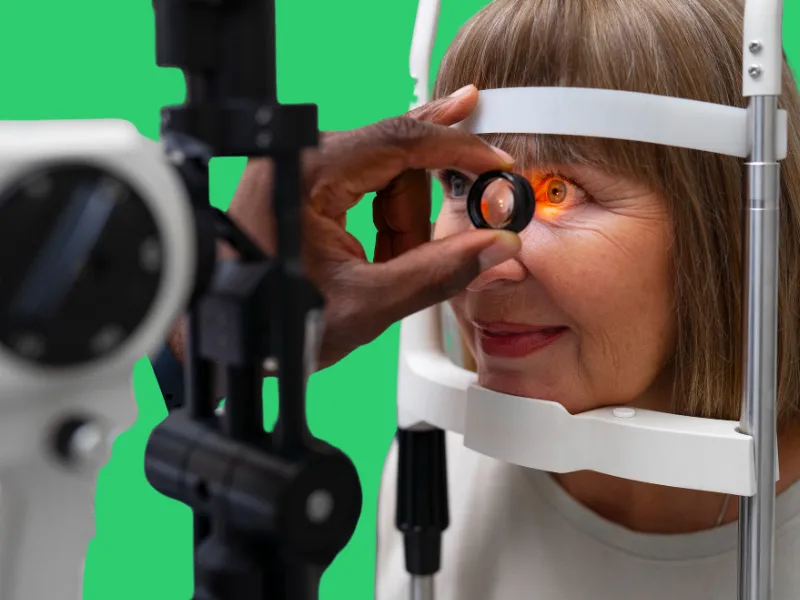
2- How Diabetes Affects the Eyes
2.1 What’s the link between diabetes and eye problems?
Think of your eye as a camera. Diabetes can slowly blur the lens or damage the film inside, making it harder for the camera to take clear pictures. Similarly, high blood sugar can cause eye changes, leading to vision problems.
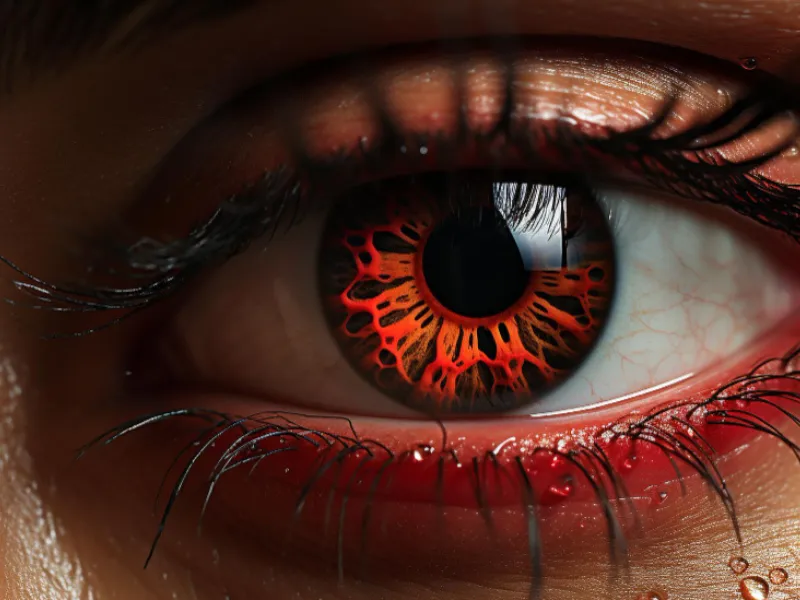
When your blood sugar levels are too high, it can cause damage to the tiny blood vessels in your eyes. Over time, this damage can lead to several eye problems, such as blurry vision, diabetic retinopathy, cataracts, and dry eyes. (1), (2)
2.2 Common Issues Caused by Diabetes:
- Blurry Vision: High blood sugar can make the lens of your eye swell, causing blurry vision.
- Diabetic Retinopathy: This is a condition where the blood vessels in the retina (the light-sensitive part of the eye) become damaged, which can lead to vision loss.
- Cataracts: Diabetes increases the risk of cataracts, which cause the lens of the eye to become cloudy.
- Dry Eye: Diabetes can affect the nerves in your eyes, leading to a lack of moisture and causing dryness or irritation.
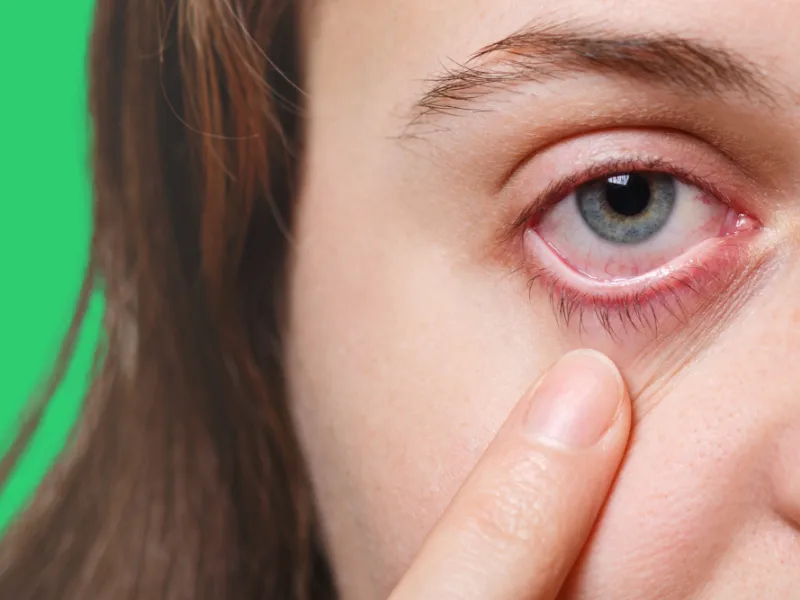
| 3- Who Is Not a Good Candidate for LASIK? |
|---|
When LASIK May Not Be Safe
|
| Tip Box: “Signs your blood sugar may be affecting your eyes” |
|---|
 If you notice any of these signs, it’s essential to consult an eye specialist before considering LASIK. |
Managing diabetes involves more than eye care. Here’s how heat therapy can improve diabetic comfort
4- Who Can Be a Good Candidate for LASIK?
When LASIK Is Possible for Diabetics
- Stable Blood Sugar (HbA1c Under Control)
Most medical experts agree that well-managed diabetes lowers the risk of complications. (4) - No Significant Eye Disease
Conditions like diabetic retinopathy or cataracts should not be present. - Stable Vision for at Least a Year
A steady glasses prescription means your vision isn’t shifting due to sugar levels. - Healthy Cornea
Your cornea must be strong and thick enough for the laser to reshape safely.
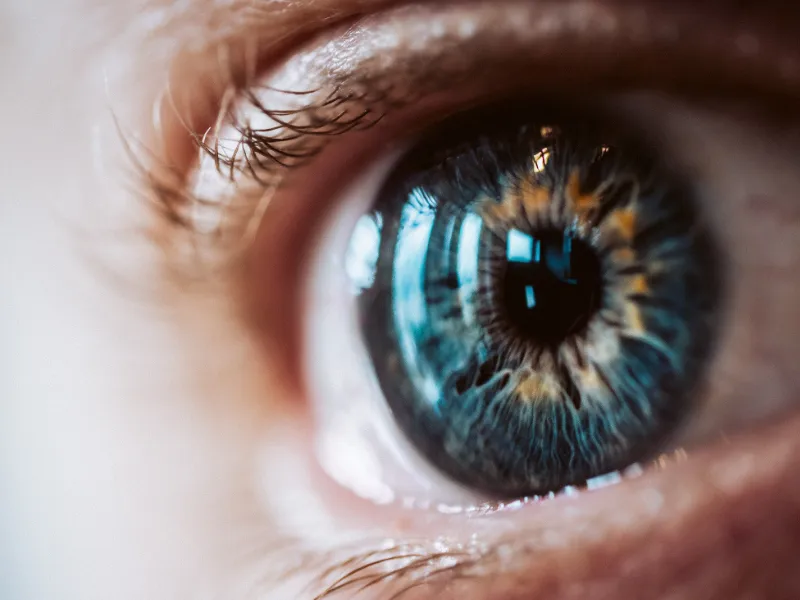
If you meet these criteria, LASIK could offer you freedom from glasses or contact lenses, but it’s important to have a thorough eye exam with your doctor to confirm it’s the right choice.
What should you watch out for?
While LASIK is generally safe, diabetes can increase the risk of certain complications. Here are some key points to know:
⚠️ 1. Slower Healing Time
- High blood sugar can slow down your body’s healing process.
- This may lead to a longer recovery after surgery.
- You’ll need to follow the aftercare instructions more carefully. (5)
⚠️ 2. Higher Risk of Dry Eyes
- Diabetics already have a higher chance of dry eyes.
- LASIK can temporarily worsen this, causing blurry or uncomfortable vision.
- Dry eyes can also affect how well your eyes respond to treatment.
⚠️ 3. Risk if Retinopathy Gets Worse
- If you have diabetic retinopathy, LASIK might not be safe.
- Damaged retinal blood vessels can lead to poor healing.
- Always make sure your retina is healthy before going for surgery. (6)
6- Real-Life Experiences
What Other Diabetics Say on Reddit…
- Dry Eye Concerns: Many with T1D mentioned experiencing dry eyes after LASIK, which can be exacerbated if you already have a history of chronic dry eye.
Some felt the dryness resolved over time, but others noted it as a lingering issue. It’s important to discuss your eye health, especially dry eye, with your surgeon before proceeding. - Regaining Vision: Several users shared that LASIK significantly improved their vision, with some achieving 20/20 sight. However, there were cases where vision regressed over time.
One user, who had a severe prescription, had to undergo a follow-up procedure to correct their vision further. - Complications and Setbacks: A few shared that despite successful surgery, they required glasses again after a few years.
Some attributed this regression to diabetes, suggesting that it might accelerate the natural changes in vision post-surgery. Others, with stable diabetes management, didn’t experience these issues. - Satisfaction and Long-term Effects: Positive stories included people who were satisfied with their LASIK results, enjoying clear vision for many years without the need for glasses or contacts.
However, a few users, especially those with retinopathy or other eye conditions related to diabetes, found they weren’t eligible for LASIK. - Alternative Methods: A few mentioned that people with severe eye conditions might need alternative procedures like PRK (Photorefractive Keratectomy), especially if there’s not enough corneal tissue for traditional LASIK.
In conclusion, while LASIK can be a life-changing decision for many diabetics, it’s crucial to consider your individual health, particularly eye health and diabetes control.
Consulting with your ophthalmologist and ensuring your A1C levels are well-managed are essential for minimising risks and improving the likelihood of successful outcomes.
7- What Does the LASIK Evaluation Involve for Diabetics?
Before LASIK, your doctor will check if your eyes and your overall health are ready for surgery.
7.1 Detailed Eye Exam
- Retina Check: To rule out diabetic retinopathy or other retinal damage.
- Corneal Mapping: This checks the shape and thickness of your cornea; both must be healthy.
- Tear Test: Looks for dry eyes, which are common in diabetics and may affect healing.

7.2 Blood Sugar History
- Your recent HbA1c levels and long-term sugar control are reviewed.
- Unstable or high sugar can slow healing and affect vision outcomes.
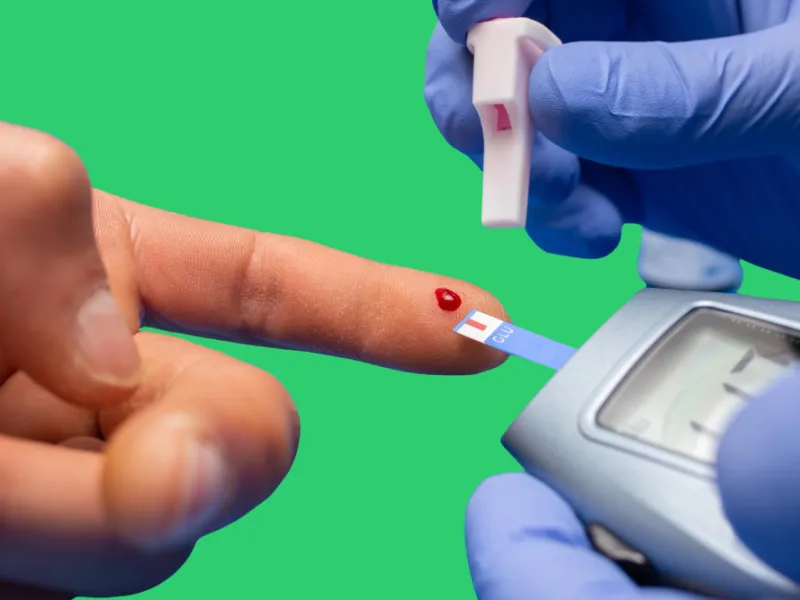
7.3 Clearance Letter
- You might need a letter from your diabetes doctor or endocrinologist.
- This confirms you’re healthy and stable enough for eye surgery.
This careful, multi-step evaluation helps your doctor decide if LASIK is right for you, ensuring your safety and the best possible outcome.
8- Alternatives to LASIK for Diabetics – Quick Benefits
Apart from LASIK, some diabetics consider other vision correction options like contact lenses.
- PRK: Safer for thin corneas; no corneal flap needed.
- LASEK: Suitable for sensitive or thin corneas; less invasive than LASIK.
- ICL: Works well for high prescriptions; reversible option.
- Upgraded Glasses/Contacts: Non-surgical and easy; modern lenses offer better clarity.
| 9- Doctor’s Tips for Safer LASIK with Diabetes |
|---|
|
10- Conclusion:
So, guys, in this article, we’ve covered the question, Can a Diabetic Get Lasik Eye Surgery? in detail. If you’re diabetic and thinking about LASIK, remember that careful planning is key. With proper blood sugar control and no major eye issues, LASIK can be a safe and life-changing procedure.
As always, I recommend having an in-depth consultation with your ophthalmologist and endocrinologist. If you’re ready to take the next step toward clearer vision, schedule a consultation today and start your journey.
11- FAQs
Yes, diabetics can get LASIK surgery if their blood sugar is well-controlled and they don’t have serious eye complications like diabetic retinopathy. It’s important to have a thorough eye exam to ensure your eyes are healthy enough for the procedure. Always consult with your ophthalmologist before making a decision.
Yes, uncontrolled diabetes can affect LASIK results by slowing down the healing process or causing complications like dry eyes. Keeping your blood sugar under control is key to achieving the best results. Your doctor will assess your eyes to determine if LASIK is safe for you.
If your blood sugar is poorly controlled, it may increase the risk of complications, such as slower healing or infection after LASIK. It may also affect the stability of your vision. Your ophthalmologist will likely recommend getting your blood sugar under control before considering LASIK.
Diabetic retinopathy is a condition where high blood sugar damages the blood vessels in the retina. Regular eye exams, including retinal scans, can help detect it early. If you have diabetes, it’s important to get your eyes checked regularly by an eye doctor.
LASIK itself is generally safe for diabetics, but complications can arise if you have diabetic retinopathy or other untreated eye issues. The surgery might not be recommended if your retina is affected. A thorough evaluation by your eye doctor will determine if you’re a good candidate.
Yes, people with type 1 diabetes can get LASIK if their diabetes is well-managed and they don’t have significant eye problems. However, stable blood sugar levels and a healthy retina are essential for the best outcome. It’s always best to consult with your doctor before proceeding.
For the best results, your blood sugar should be stable for at least a few months before undergoing LASIK surgery. Ideally, your HbA1c level should be under 7%. This ensures that your eyes are in good condition and will heal properly after surgery.
LASIK can reduce or eliminate the need for glasses or contact lenses, but it doesn’t fix underlying diabetes-related vision problems, such as diabetic retinopathy. If you have other diabetic eye conditions, LASIK might not be the right option. Your doctor will evaluate whether LASIK is appropriate for your specific situation.
For diabetics, recovery after LASIK may take a little longer than for those without diabetes due to slower healing times. Most people experience some dryness or discomfort for a few weeks. Follow your doctor’s post-surgery care instructions to help speed up the recovery process.
Yes, there are alternatives like PRK, LASEK, or implantable lenses, which may be better suited for people with diabetes, especially if LASIK isn’t recommended. Glasses or contact lenses can also be a simpler option. Talk to your eye doctor about which option is best for you.
12- References
At MedicaWire, all medically sensitive content is reviewed by licensed healthcare professionals. Our team ensures that the information you read is accurate, up-to-date, and based on trusted medical sources.
Learn how we maintain high standards by reading our Editorial Policy.
📚 Sources
- Leopoldo Spadea, Maria Pia Paroli. Laser refractive surgery in diabetic patients: a review of the literature
https://pmc.ncbi.nlm.nih.gov/articles/PMC3497454/ - Frederick W Fraunfelder. Laser-assisted in situ keratomileusis complications in diabetes mellitus
https://pubmed.ncbi.nlm.nih.gov/11917170/ - Rachel G Simpson. Laser in-situ keratomileusis in patients with diabetes mellitus: a review of the literature
https://pmc.ncbi.nlm.nih.gov/articles/PMC3474268/ - Eric Weinlander. LASIK in Patients With Diabetes Mellitus
https://eyewiki.org/LASIK_in_Patients_With_Diabetes_Mellitus
ℹ️ Our Promise
MedicaWire follows strict sourcing guidelines and only references peer-reviewed studies, academic institutions, and reputable medical associations. We update content regularly to reflect new health information.

- Be Respectful
- Stay Relevant
- Stay Positive
- True Feedback
- Encourage Discussion
- Avoid Spamming
- No Fake News
- Don't Copy-Paste
- No Personal Attacks



- Be Respectful
- Stay Relevant
- Stay Positive
- True Feedback
- Encourage Discussion
- Avoid Spamming
- No Fake News
- Don't Copy-Paste
- No Personal Attacks




